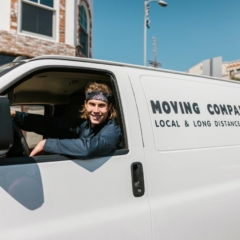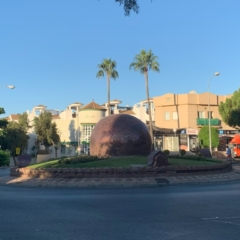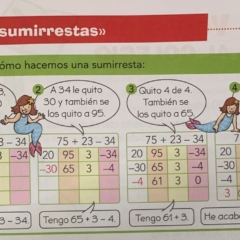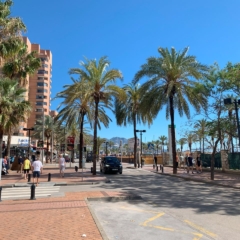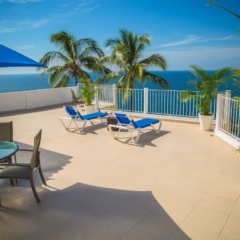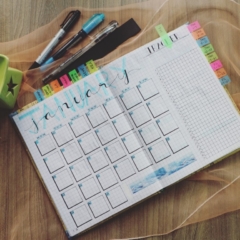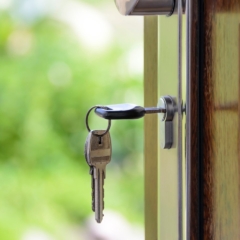Spoiler alert: your first months in Spain
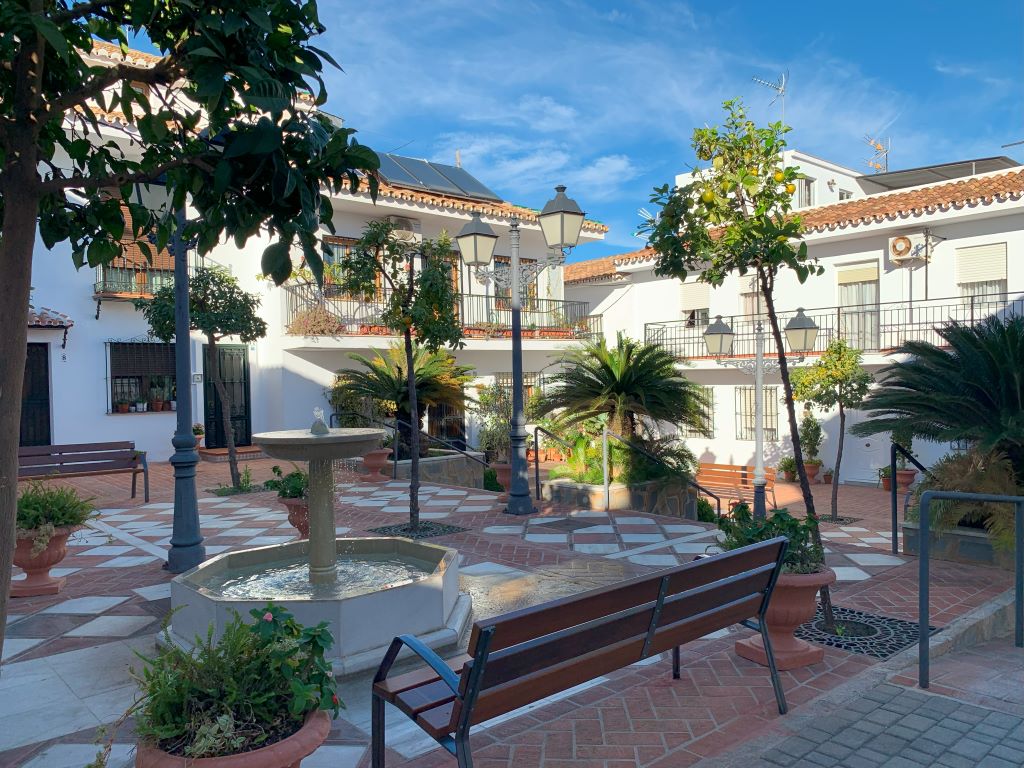
I can tell what your first months in Spain are going to be like. Yes, I am a fortune teller (or maybe it’s that everybody’s first months is the same, so I can extend it to you). Remember the checklist page with contracts to close before moving to Spain? Well, this is pretty much the part when we open everything again. Spoilers ahead!
Above: view from the exit of the airport of Malaga. Pretty much the first outdoor you’ll see in Spain if you come through this airport.
You arrive in the airport and immediately start to confirm that Spain is indeed, beautiful. You head to the taxi spot (Malaga’s airport taxi spot shown above) and get to your destination (and it probably costs less than you anticipated). Get to know your new place and crash, resting until you feel hungry and wake up to look for food. If you are like our family and arrives in January, you fall in love with the Spanish oranges and tangerines this same day.

Getting a phone in Spain
Next morning, you are ready to seize the day. You realize the first step is probably to get a prepaid phone chip, as you don’t have a local bank account yet to have a post-paid phone. Such a chip can be obtained in a phone shop near you, because they are spread everywhere. You find one easily with your laptop, tablet or phone-with-the-chip-of-the-previous-country, looking in google for the main phone companies in Spain – Movistar, Orange and Vodafone.
Pause for self-reflection: we have Movistar and we’re happy with their services. We had another one on our first days, none of these above, and the company sort of scammed us after a few days of use, trying to charge a lot more than agreed. I won’t write the name here because I don’t want to get sued, but my conclusions on the matter are two: keep with the big companies when it comes to phone, they seem to be more reliable; scams sort of run wild in Spain, and newcomers are their favorite prey. More on scams to come still in this spoiler alert. Or should it be a fraud alert?
Having a local phone is more than it looks; you can call potential homes to buy or rent, and order a pizza or an Uber, quite handy while you have no car. While on this stage, you walk around your area. It may be all you know of your new city by now, but soon it may become a place that is far for you to reach from your new home.
Explore the surroundings
You enjoy the area while you can and get familiar with the local entertainment options and commerce, mainly computer shops (or is it only Hubby who values these above all venues?), bakeries, restaurants, supermarkets, drugstores, papershops (were you can print forms for documents, quite indispensable) and Tabacarias (tobacco shops. They sell everything, including bus tickets. If you speak Spanish, they also are kind enough to share useful information. Weren’t those Spanish classes useful?)
By the way, anytime you have no idea where to buy something, check the Tabacaria. When you get tired of walking, you come back to the hotel/vacation rental to check homes available on idealista.com.

Choosing a school
Another good thing you can do with your new phone is to call schools. You can find plenty of them around your area on google but the public ones will request the Padrón, which you don’t have, (more about it in the schools section) and, at least officially, accept enrollment only in specific months in the beginning of the year (but in practice, you can enroll your kid as soon as you have the Padrón). So you may go for a private (and pricey) school, at least for now. Watch out for the schools that say they are dual language – they not necessarily are.
Pause for self-reflection: I checked one that stated they were a “reference” Spanish-English Colegio bilingüe (bilingual school) in the city, but nobody other than the English teacher spoke English there – they just offered Cambridge exams and the mandatory English as a foreign language lessons.
So you need your phone to verify the info you find online. You call a few schools, inquire, make a choice, call for an appointment, call an Uber and go, happy to have your kids in school again. Yes, another big deal solved! You are doing so well!! Do take some time to celebrate. Our Kiddo skipped only four days of classes when we moved, quite a good mark in my opinion.
Book a NIE appointment
Now, because you read this blog, you know that you need a phone to book a NIE appointment, and you need a NIE to open a bank account. You need a bank account and a NIE to either buy or rent a home (you will also need a local bank account to put the utilities in automatic debt, as this is the standard in Spain). You’re welcome. So your next step is to book a NIE appointment.
The NIE is something you can do on your own – I promise it is easy, be you an EU citizen or not. And you can book it even without speaking Spanish, following this step-by-step. The only problem is that you will need to either speak Spanish or to be accompanied by someone that does on the appointment day.
If you don’t speak Spanish or for some reason prefer to rely on a gestor, this person can book the NIE appointment for you (and then you don’t need a phone for it; it even can be booked before your arrival in Spain to save time) and should be able to go with you on the appointment if you so agree and need (recommendable if nobody in the family speaks Spanish). This is one of the reasons why I think that if one decides to use the services of a gestor, it should be one that lives in the same province as oneself.
Pause for self-reflection: we hired a gestor in Spain while we were still in the USA. As we didn’t know anybody to ask for recommendations, I found one in one of the expats in Spain communities on Facebook.
This person/company did not live in Malaga, the province where I was going to live, but I didn’t realize it would be a problem back then. Lets call this gestor X, because I don’t want to be sued. X was quite confusing from the start – red flag – but we kept X for lack of alternatives. We informed the date we would arrive at least two months ahead and asked to have a NIE appointment for the week of our arrival, but X forgot to book it.
When asked about it, she said all spots were taken, so she had to keep looking. She booked a time for hubby (but not one for me) for 14 days after our arrival, which meant that for those 14 days, we couldn’t do much other than look for houses.
She gave us very general instructions on what we had to do and filled the forms halfway and with mistakes– we had to fill some blanks and do corrections, despite having already sent her copies of all our documents. X sent the forms through e-mail, and we printed it on a paper shop, then proceeded to pay on a bank and go on the appointment. Avoid these problems by following the tips on the magnific post with a foolproof method to find a good gestor.
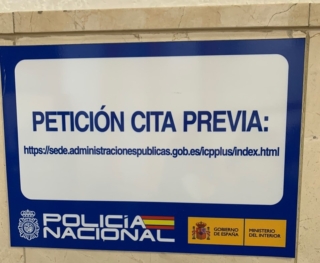
On appointment day, we saw this life changing poster in the police station:
And this, my dear reader, was the link to request an appointment on the police for a plethora of documents, NIE and Residence among them. I said was, because they have already changed it. But I got you covered, here is the new link. With this beautiful address, I managed to book myself a NIE appointment for the next day (it wasn’t difficult at all to get a spot, who would expect that?)
The experience with X is the reason why I recommend you do the NIE on your own if you can; I thought a gestor would make our move easier, but that wasn’t quite the case. On the other hand, if you happen to know a good gestor, I think he/she can help you a lot, especially if you don’t speak Spanish or if you are going to be a resident in Spain.
Residents pay taxes and the gestor is an accountant; it is even more important to have a gestor if you become an autonomo, because them the taxes are more complex. Allow yourself some time and ask for references as you go meeting people in Spain. Our current gestor was introduced to us by the real estate agent that intermediated the buy/sale of our apartment.
Now that you have a NIE, you already know what the next step is: to open a bank account. That’s huge, pretty much settles you in, and will make it possible to rent or buy that place you saw on idealista.com and have been dreaming since. Continuing foreseeing your first months in Spain… Oh! I see a bank account in your future! And in Spain!
Explaining the NIE
Fantastic, but first let’s take a good look at that NIE you just got: it is an A4 piece of paper, with a text that reads that someone assigned you a NIE, followed by a number in the format L-NNNNNNN-L (where L are letters and N are numbers). It has a stamp and a signature.
Well, the NIE itself is that sequence of numbers and letters (not the paper), but most of the times someone asks for your NIE in Spain, they expect to see it written in an official document; and though the A4 paper is technically so, they are either referring to the “greencard” (if you are from the EU) or to the TIE (if not). Both are residence documents that mention your NIE, but you don’t have them yet.
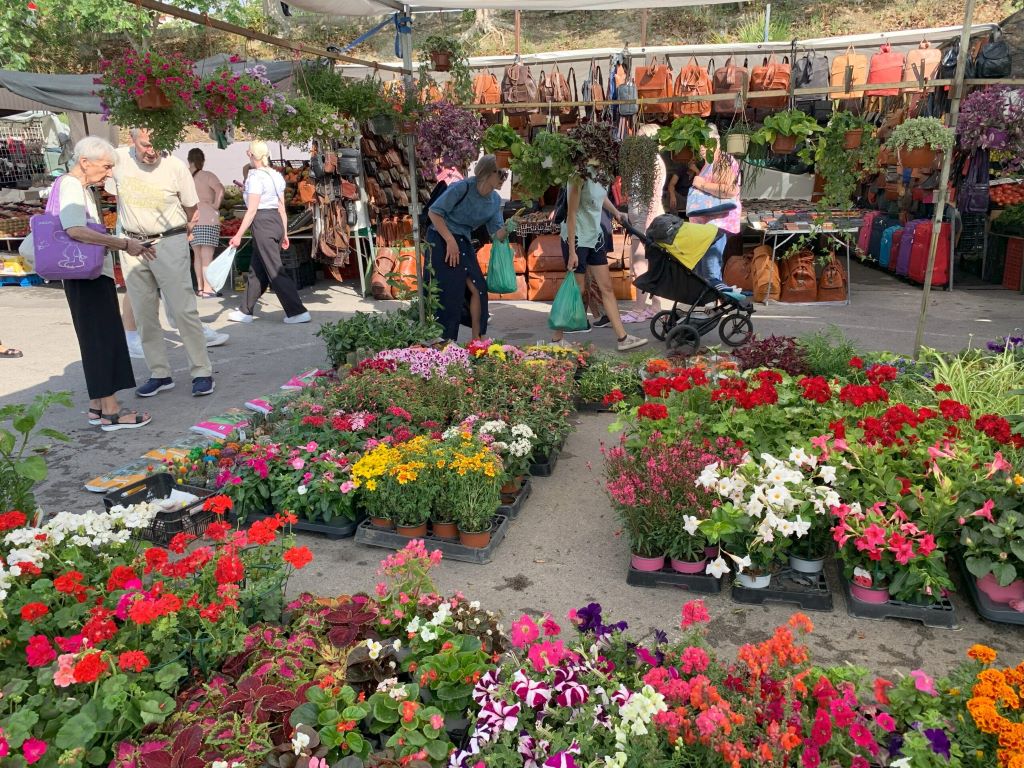
Banking in Spain
We knew nothing of these NIE nuances and managed to open first hubby’s account, then mine, both before residence was concluded. We tried his first because we always assumed that an EU citizen would have better chances; after we managed to get his, we tried mine in the same agency and both worked. I explain this in details in the post about money transfers & banking in Spain for non-residents.
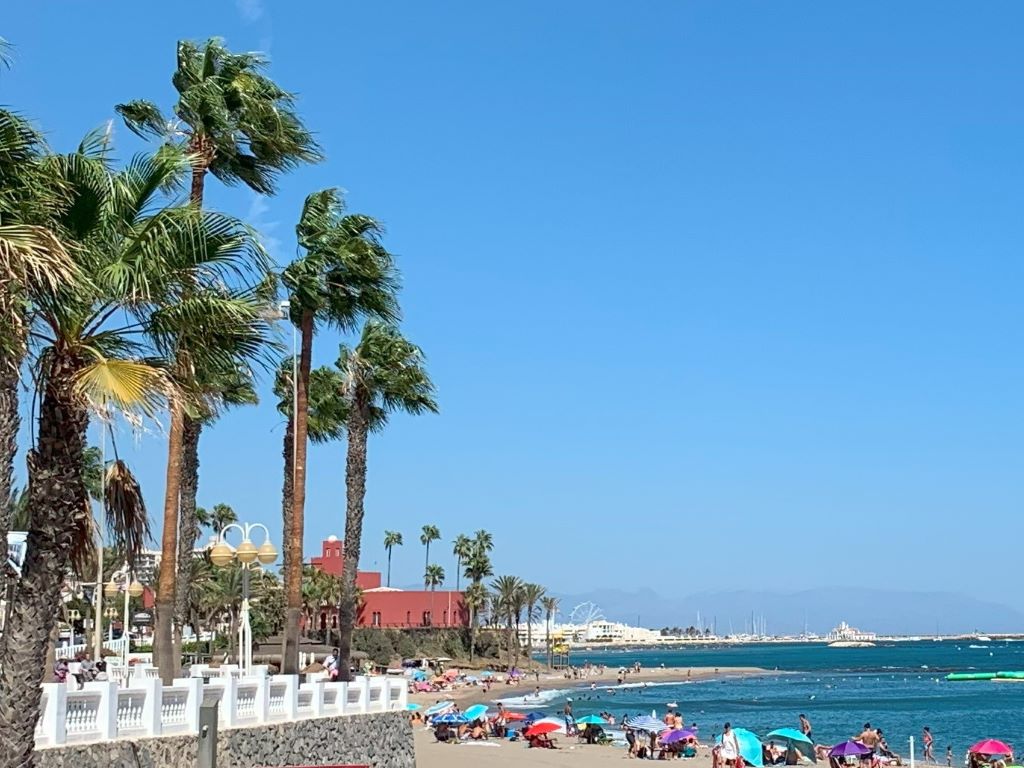
The all important digital certificate
While on your quest for the perfect home and the good enough bank, you can also deal with the digital certificate, if you plan to be a resident in Spain. This is a document done through the Agencia Tributaria https://sede.agenciatributaria.gob.es/Sede/inicio.html, which is pretty much the IRS (USA), Receita Federal (Brazil) or Maksu -ja tolliamet (Estonia); the tax collection institution of the country.
This digital certificate makes the presentation of future tax reports easier and allows access to some governmental related websites that carry personal data, such as pension contributions and healthcare information. It is also fairly easy to obtain.
You have to set an appointment and go there with NIE, passport and filled form. Once it is generated, computer installation instructions will be forwarded to the e-mail you provided during the request (I am saying it is easy, but hubby did this installation part. It is so easy when someone else does it… but let me tell you, I saw the process and it was only “press next” a couple of times or so.)
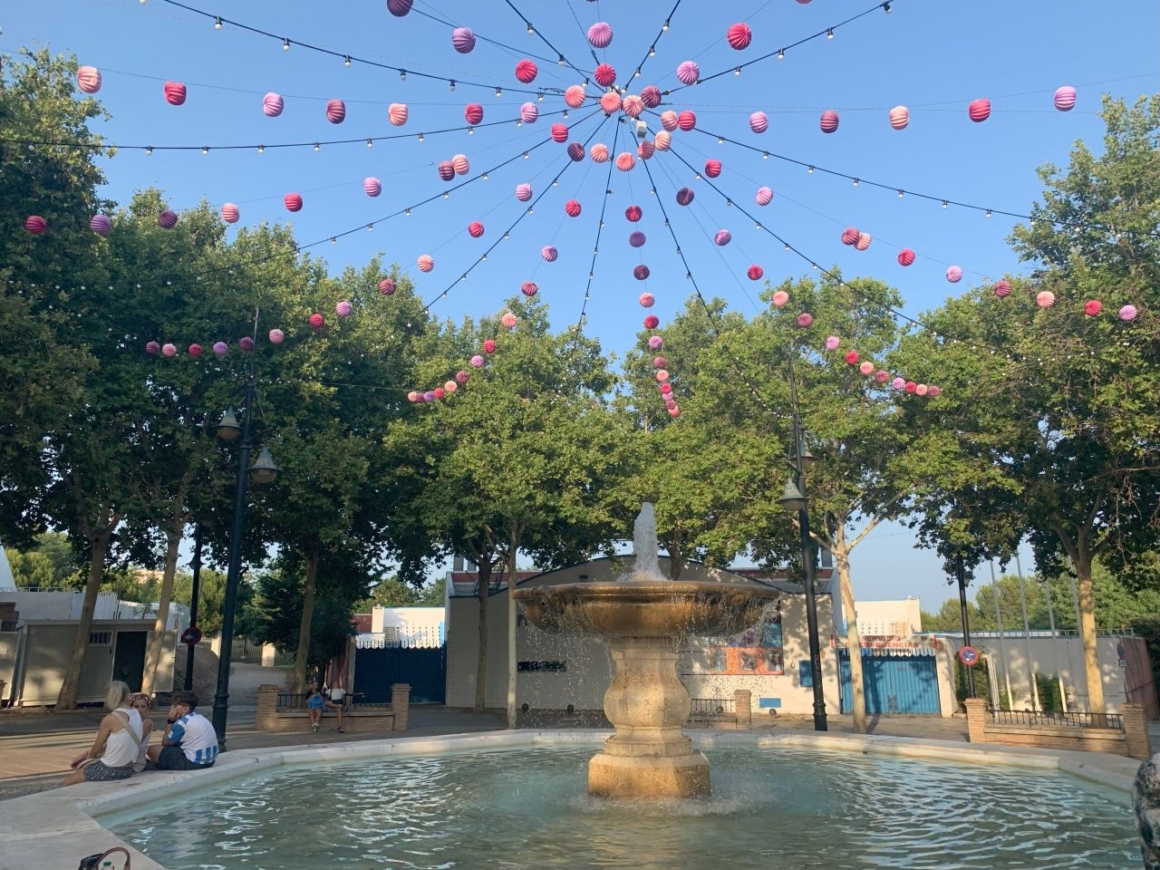
Find a good gestor, if you haven’t yet
Now, when dealing with this document, as it is a tax related matter, I feel is a good time for you to have a gestor, as you have had some time and interacted with some locals; maybe you already got a good recommendation? Interviewed a few? If you don’t have yet, dont miss the post on how to find a good gestor!
Jobs & autonomos
On a related matter, do you have a work in Spain? Do you intend too? It can be easy to find a job if you work on IT or with construction, but otherwise, it is mostly difficult, from what I read on Facebook. If you work from home, if you are a digital nomad or have your own company, one of the options is to become an autonomo (something like self-employed) which entails monthly payments for the social security, but also access to healthcare and to a future pension.
Hubby has his own company, so he became an autonomo. I became autonomo too, providing services to Hubby’s company (I can say Hubby is the boss!) This process of becoming autonomo was done with the help of a gestor, so I suggest, if you are considering becoming autonomo too, that you talk to one and follow his/her advice.
Autonomos tend to pay more taxes and fees than otherwise employed people, but the only option we saw to avoid that was to open a branch of Hubby’s company in Spain and become employees of this company. Unfortunately, in our case, it would cost monthly even more than being an autonomo. Let me know (please!!) if you find a better way.
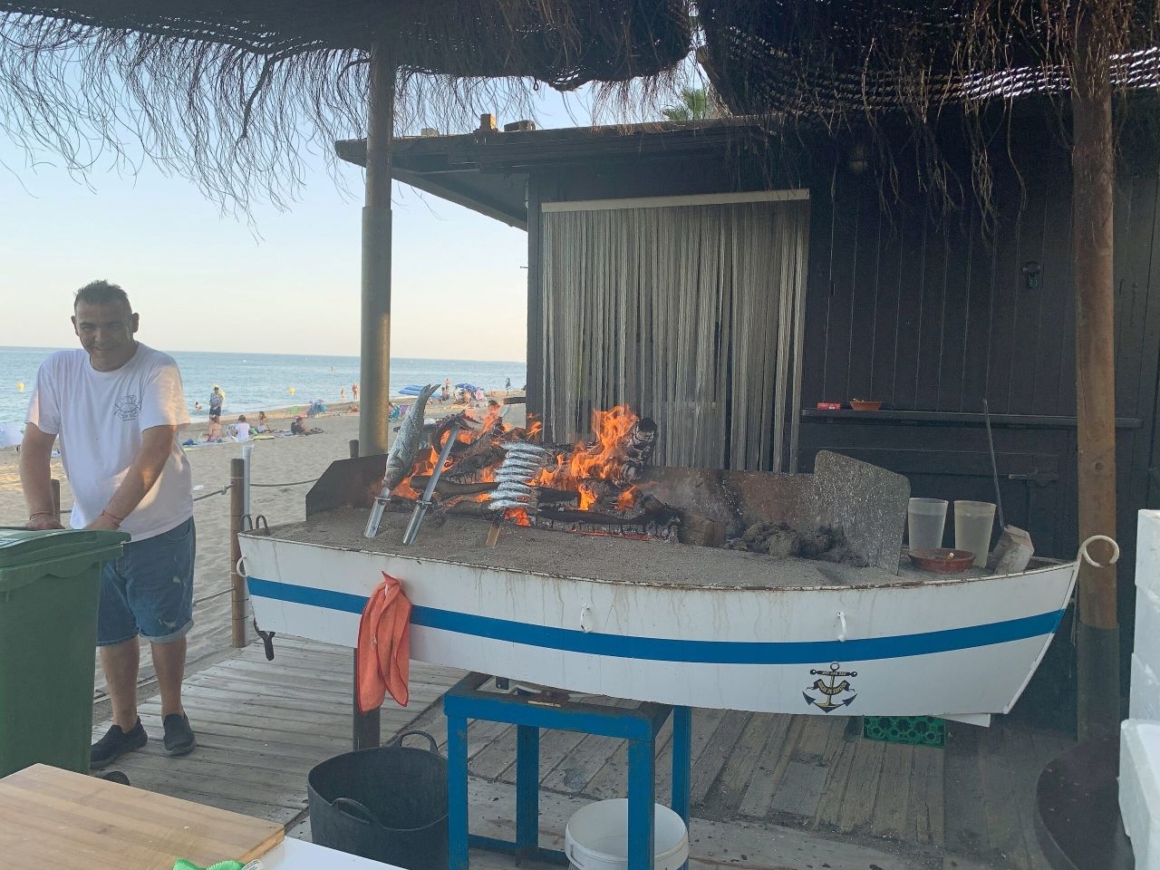
Buy or rent, but get the Padrón
Once you have a bank account in Spain and a NIE, a wide range of possibilities open. You can transition to a pos-paid phone keeping the same number, after all you already gave it to so many real estate agents. You can now close the deal on a home, be it a rental or a buy. If you are going to rent, remember to check with the ayuntamiento if there is a minimum amount of time to rent in order to get the Padrón (in Benalmádena: 3 months) and to ask if the landlord will sign this important document for you.
Don’t rent without his/her agreement, as Padrón matters if you intend to have access to schools, healthcare, if you are bringing your goods to Spain or intend to become a resident. Once you have the house, contact the utilities providers (ask the real state agent, the landlord or the previous owner which they used and keep the same for now; you may change it in the future if needed). Do your Padrón in the local ayuntamiento and take this huge elephant out of the living room.
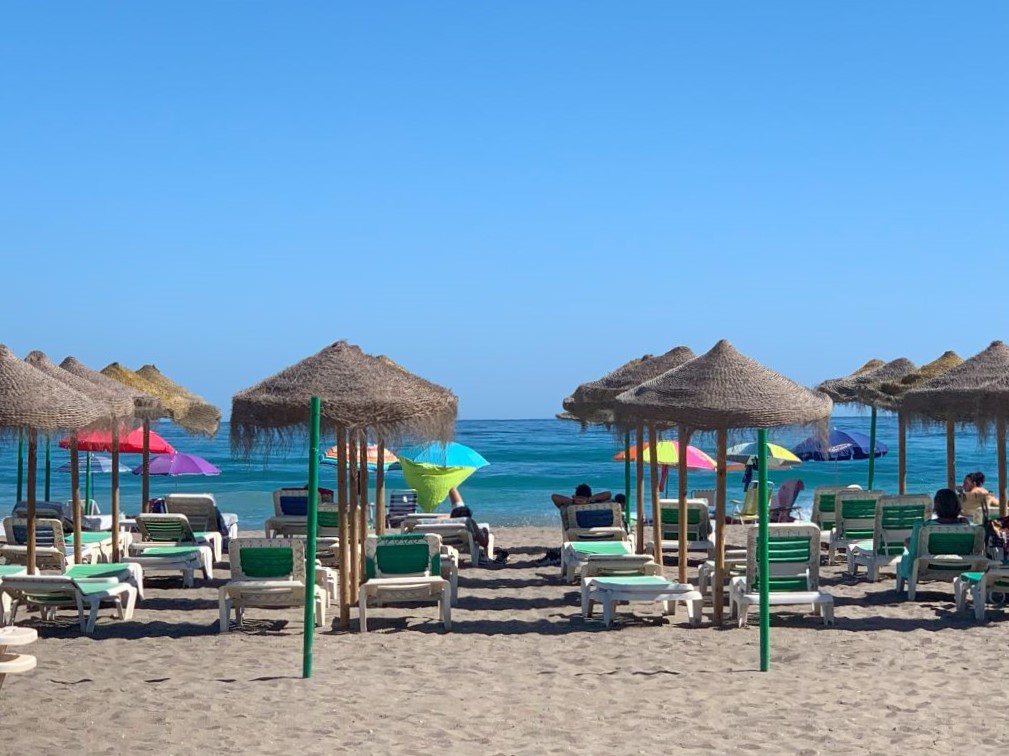
Residence!
The next logical step is to get the residence permit. This process varies a lot depending on what your residence request is based on. Check the residence post for a lot more information on the matter, by the way; here is just the short version. And check the section about getting your Spanish documents from Living in Spain too, as there are the detailed procedures we took to get each document done.
In our case, Hubby and Kiddo are Europeans and I am a family member of an EU citizen, so we knew the residence processes that were pertinent to us. Hubby, European, got the residence very easily. He needed an appointment, filled form, tax paid, passport and copy of identification page, NIE, proof of funds and proof that he was an autonomo (this last one was not a requirement per se, but together with the padrón, it allows him to use local healthcare, so we didn’t have to get a private health insurance).
Easy, right? Not much? I see. But I promise it didn’t feel like too much at the time. Plus, carrying our file folder around with every document we had ever obtained and their copies made it easier – we simply couldn’t have forgotten something if we had everything and their copies with us.
For me, non-European, it was almost the same; the only addition was that I had to present a copy of my full passport, every single page, to prove that I had entered Europe less than 90 days before. I also had to prove that I was married to an EU citizen, and needed a letter from the Spanish government saying they acknowledged my right to live in Spain due to marriage.
For Kiddo the first time we tried was unsuccessful because he wasn’t present; according to the police, the kid had to be there, go figure. So we made a new appointment and Kiddo gladly skipped school to go to the police. I hope your residence procedures go smoothly too.
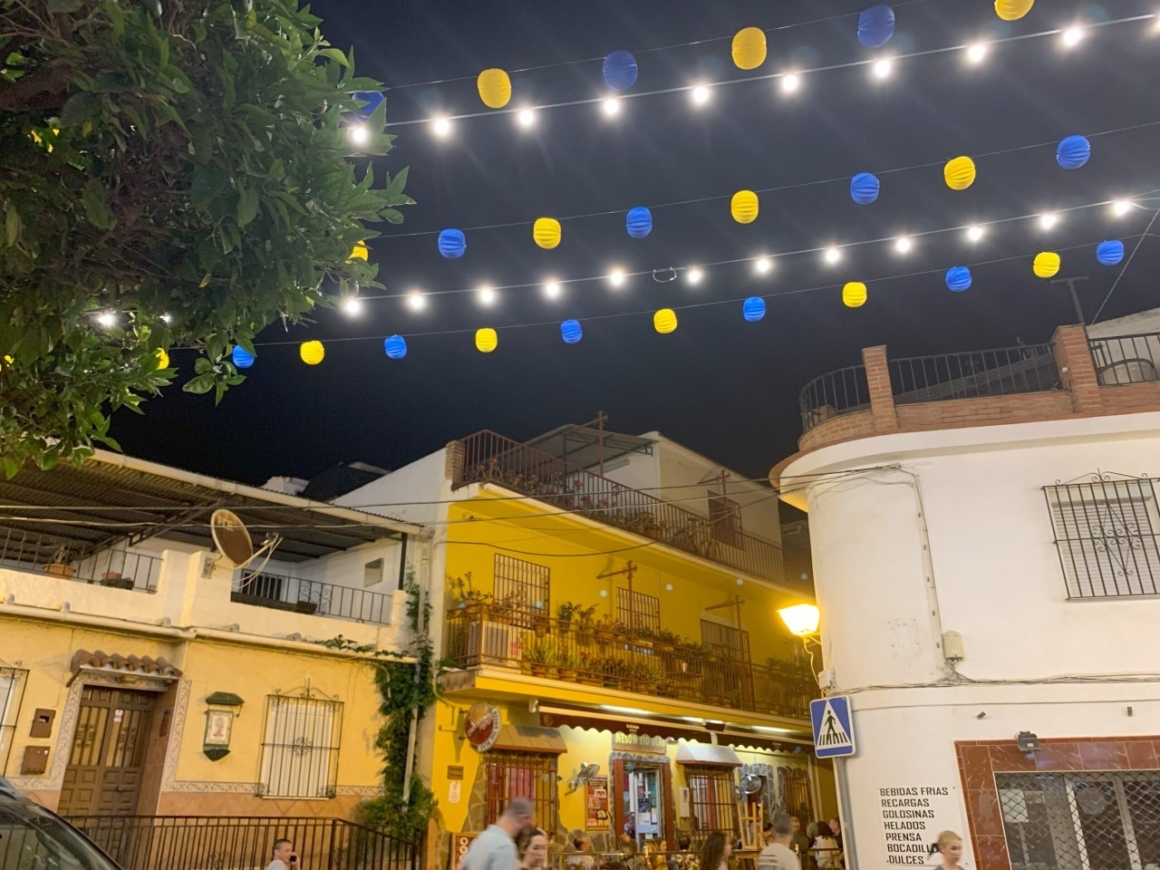
I see a car in your future (maybe)
With the residence sorted, you can deal with car related stuff. You need a residence permit to exchange your driver’s license and a valid license to buy your car and to have it insured. Do you have to change your driver’s license? If it is not European or is expired, yes, you do.
Check our experience with the driver’s license exchange – as usual with documents, this one has been easy, though the document can take a while to be sent. In the meantime, you have a provisory driver’s license, good for 3 months. The car insurance is the easiest thing if you are buying from a car dealership, because they take care of it. You may need to ask them to not ship your car documents to you, though, if you still don’t have a permanent address. Ask to collect it in the dealership.
The healthcare card
The last step (at least for us) was the healthcare card, something that needs to be shown in order to use public hospitals. For free, people from the US, completely for free. To get the card we were required to fill a form, provide a document with NIE and a copy of this document, the famous padrón and a document called “Documento acreditativo del derecho a assistencia sanitaria pública” which translates vaguely to “document that declares the right to public healthcare”.
This Documento acreditativo one is obtained through the social care institution, and our gestor got it online for us. One needs to be a taxpayer to have it; we got it because autonomos qualify. Now getting the healthcare card was tricky; check the healthcare post to know further.
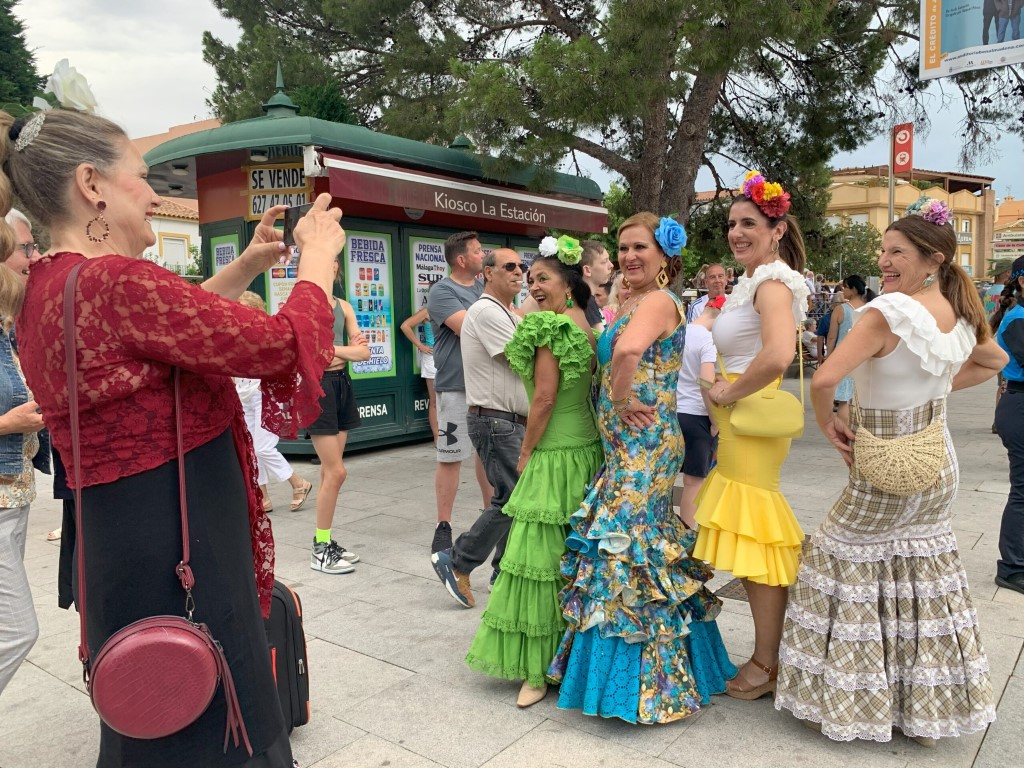
Start shining 🙂
Getting there! Don’t forget to celebrate each step closer to normality, even if it is just an “Hurray, we are doing it!” It helps if you enjoy the process, much better that dreading the uncertainties. The glass is getting full.
At this stage all that is left to do is finish unpacking (because it does take a while!) and to buy sunscreen, whatever your new home needs, and more sunscreen… and then change the kid to a permanent school, now that you have a permanent home and address. Make new friends in the process (meet up is an app that is valuable for this, specially if you are into sports; the many communities on facebook are good too, as are Spanish courses and any other courses – the expats in Spain are extremely social, one can fill their planner with social activities from monday to monday if one so wishes), and life is getting ready to be normal again.
When you get to this stage, you are not on the move anymore, you are finally living in Spain! It’s good. To help you start a new life in Spain, check our next session – Living in Spain. And see you around!
